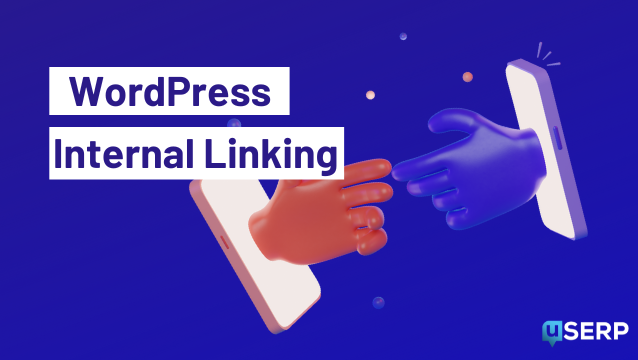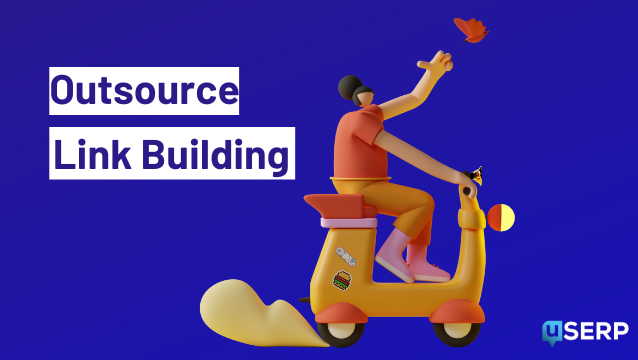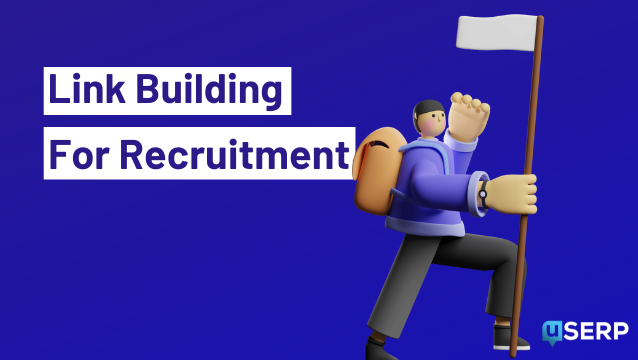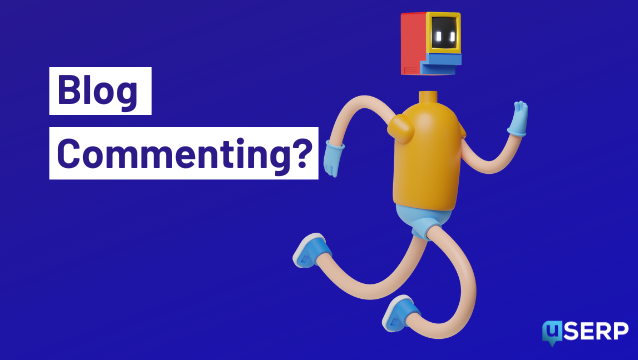Ecommerce link building is a key factor in ranking your online store for organic keywords that can drive relevant buyers to your digital storefront.
Acquiring ecommerce backlinks and brand mentions will help increase your brand authority in your niche, resulting in increased traffic and sales.
I’ve built more than 20,000 backlinks in my years of SEO work, and I’ve tested all of the strategies.
When it comes to ecommerce link building, there are only a few strategies worth your time and effort.
Here is how to do ecommerce link building that improves your organic traffic and drives qualified buyers to your online store.
Why Ecommerce Link Building is Key to Online Store SEO Success
As an ecommerce store investing in SEO, your main objective is to bring in qualified traffic that wants to buy your products, so you can stop spending money on ads.
Organic traffic can create a sustainable flow of users rather than having to buy visits indefinitely.
The only issue? Capturing traffic from organic search isn’t as simple as publishing content and hoping it ranks well.
Google’s ranking factors are more complex than that, taking into account things like:
Your brand reputation, brand awareness, and most importantly, backlinks.
Backlinks are the most important ranking factor in SEO, and are critical for ecommerce brands to acquire. Don’t believe me? Here is Google’s explanation of how they rank content:
The key sentence to pay attention to: “For example, one of several factors we use to help determine (quality content) is understanding if other prominent websites link to the content.”
Links to your online store are endorsements from other websites, telling Google (and users) that you are a trusted brand worth shopping at.
Think of each backlink like a product review on your store: they send positive signals about the quality of your brand.
The better quality (and more) endorsements you get, the better!
In addition, link building to your online store helps position you in front of buyers, tapping into the readership and audience of another website.
It’s what is often referred to as Digital PR.
Tip #1. Pitch to Top Product List Articles
Link building is one of the top three ranking factors of eCommerce SEO. The best way to build high quality ecommerce backlinks is to pitch your product and brand to industry round-up lists.
I’ve done this with style of ecommerce link building for hundreds of my clients, and it works extremely well.
Here is how:
Let’s say you are a boutique furniture ecommerce store. You sell mid-century modern furniture, like dining tables.
Head to Google and search for a list, like this one about the top 15 mid century modern dining tables in 2022 by Home and Jet:
Click on the article and look at the content they currently have, and what companies or store items they are sharing to their readers:
If you have a great product that will fit the list, you want to reach out to this website and pitch them.
These articles can get thousands of visits per month. In fact, in this example, this single article generates 9,100 clicks per month. You’d have to pay $21,000 in advertising costs to generate that kind of traffic.
If you can get your product listed on this page, you can get 9,100 people with high-intent to purchase looking at your product.
That’s the power of ecommerce link building.
You don’t need to create tons of new content and hire expensive writers. You can tap into content that already exists to drive powerful backlinks and revenue.
Tip #2. Digital PR Ecommerce Link Building
The most impactful long-term strategy for ecommerce link building is taking a digital PR approach.
This means developing unique content assets and campaigns that naturally attract coverage, PR, media attention, and make it 10x easier to pitch journalists to give you free promotion.
Typical SEO-driven content, like “how do I DIY my bathroom remodel” is boring. Journalists don’t want to link back to it!
Instead, focus your efforts on things like:
- Surveys and studies
- Trend reports in your industry
- Podcasts
- Getting quotes and stories about your brand, not just your products!
Here’s how.
Surveys and Studies
Surveys and studies for ecommerce link building are just what they sound like: surveying your current customers or industry to gather unique data and insights that media outlets will want to cover.
For example, let’s say you sell furniture. You can survey your customers to understand the most popular furniture style amongst 20-30 year old customers. Or, let’s say you specialize in selling lockers. If you asked students about how they like to organize their lockers or what items they wish they had for better organization, you could learn a lot. This info could tell you what students really like for their lockers.
This data is very interesting and can help inform shopping trends in your industry niche, giving you valuable data to email to journalists and get press backlinks.
For instance, check out this furniture industry trends report by Storis:
This guide surveyed retail shoppers to gather unique data. And it resulted in 47 backlinks:
Think about the current landscape of your industry, your customers, and information that journalists might want to reference.
Survey your customers and post polls on social media. Engage with them and learn about their shopping habits.
Then, compile the data into an [your industry] ecommerce report. You’ll score some amazing backlinks to your website.
Podcasts
Podcasts are a really impactful way to do ecommerce link building.
Going on podcasts in your niche is a great marketing strategy overall to reach new audiences who might be interested in your products, and it happens to generate great backlinks from the podcast that you get featured on.
For example, when a podcast is published, you can ask them to add your website link in their show notes, like this:
Each time you podcast, you will land a new backlink, giving you even more reason to pitch yourself, your ecommerce brand, and your founder story to podcasts.
Compile a list of the top 50 most desired podcasts to get featured on.
Connect with the podcast host, pitch your story, and aim to do one podcast per week.
In just one year, you can build 50 backlinks and do 50 podcast episodes, all in one, to catapult your ecommerce store to position #1 on Google.
Product Description
The common mistake committed by ecommerce managers is they usually copy the product description from others. This not only reduces their effort but also makes them work in a steady manner.
This can lead to Google imposing heavy penalties on the webpage and even your ecommerce site. So always write your product description on your own and then double check it using a plagiarism checker.
This will help you not only write unique content but also help visitors find what they are looking for and for you, it’ll be easier to build links to.
Tip #3. Resource And Statistics Pages
Resource and statistics pages are very easy to create, and can result in tons of new backlinks to your website.
Here are the best practices to follow to get started today.
Ecommerce Statistics Pages for Link Building
Statistics pages are where you compile a list of industry or target audience statistics.
For instance, check out this statistics page from a toy making ecommerce company:
They wrote a piece about mothering facts and statistics, where they compiled simple industry reports into a singular, consolidated post.
Using this page, bloggers will often Google for “[industry] statistics” and then link back to your article as a data source.
This technique for link building can earn you dozens of backlinks each month.
Based on your niche, think about what statistics pages you can create:
- Directly related to the products you sell (toys, soap, candles, etc)
- Directly related to your target market (middle aged moms, adult dads, etc)
- Ecommerce statistics as a whole
Ecommerce Resource Page Link Building
A resource page in ecommerce can come in multiple forms, and typically is a round-up that ranks things like: best stores in a niche, best products in a category.
Round ups and resource pages are primed for virality and sharing because they offer readers a longer guide to dive into.
Whether it’s a holiday shopping guide ranking the top gifts of the season or something more specific, resource pages generate great backlinks from other websites.
For instance, here is a resource page that is more broadly targeted, covering some of the best DTC ecommerce brands right now:
Getting more narrow and specific, you can begin to create resource pages about specific product lines in your niche, like top toy brands that donate to charities or have sustainable causes:
Or maybe you want to write a post ranking the top 31 women in ecommerce today:
The options, variations, and ideas are nearly endless.
Creating these resource lists again helps you share the content easily, driving tons of backlinks, brand mentions, and qualified traffic to your store.
Tip #4. Use HARO and Get Quotes About Your Brand
A great strategy to acquire links for your store is using a platform like HARO, otherwise known as Help A Reporter Out.
This platform connects journalists with entrepreneurs to provide quotes, sources, and data for journalists to write great stories.
For instance, here is an example of a backlink I was able to acquire using HARO:
Fair warning: this strategy is crowded and competitive in nature. Thousands of people are using HARO on a daily basis to get backlinks.
So you have to be diligent about using the platform and responding fast to requests.
If you can respond within the first five minutes of a query, you will likely get the feature or quote if your contribution is valuable and on-topic.
To combat the competitive nature of HARO, I highly recommend using social channels like Twitter to find even more journalists, going directly to them. On Twitter, use hashtags like #journorequest to find these opportunities:
If you find one that is relevant to your brand, niche, or online store, you can reply to them directly on Twitter and pitch your story.
Doing so can land you big media backlinks in high-profile publications like Forbes, Entrepreneur, Huffington Post, and countless others.
It’s a powerful, but sometimes time intensive form of link building for ecommerce.
Tip #5. Hire an Ecommerce Link Building Agency
The fastest time to results for ecommerce link building is outsourcing your efforts so you can focus on your products, your brand, and your customers.
Link building and SEO are difficult spaces to learn quickly. Which means experts and in-house hires can be very expensive.
In fact, on average, just a single hire for an SEO expert will cost $74,000+ per year:
But wait, there’s more…
This salary cost alone doesn’t include things like:
- Content costs $$$: Beyond just an SEO strategist, you will also need to give them a budget to hire great writers in your niche who can create content, write studies, trend reports, and blog posts required to drive backlinks.
- Hiring and training $$$$: the average time it takes to hire a new employee is 45 days, and that does not include the time it takes you to train them and onboard them. In addition, you might also have to provide them benefits, health care, and more costs that can quickly destroy your margins and profit. Still, if you have remote employees and use remote work software or manage their tasks through an online tool, you can ensure your team is at its maximum productivity.
- No guaranteed results $$$$$: The biggest risk of trying to do ecommerce link building without outsourcing is that you are not guaranteed to get links, even if you hire someone who claims to be an expert. Meanwhile, agencies, like uSERP, have a guarantee that every dollar you spend earns backlinks, or your money back.
- Slow time to links: hiring, training, writing, it all takes months to do and years to master. Outsourcing will get you links in days, whereas these other efforts might not pay off for 6-12 months.
Hiring a reputable link building agency solves these problems and nets you a fast time to results.
uSERP – Ecommerce Link Building Experts
Here at uSERP, we are a team of 30+ link building experts in the ecommerce space.
We help brands earn backlinks and brand mentions in relevant content that their ideal customers are searching for.
We guide strategy and help create a funnel of traffic that converts and drives revenue for your online store.
Wrapping Up: Link Building For Ecommerce Final Tips
When doing ecommerce link building, your goal is two-fold:
First, you want to build up your website domain authority so that you can rank for organic searches from your ideal customers.
Second, you want to acquire good backlinks that position you in front of your target audience or build your brand and reach.
Using these strategies outlined in this article, you’ll find great success building backlinks to your ecommerce business and online store.
- The State of Backlinks for SEO in 2024: What 800+ SEOs Think About Link Building - January 10, 2024
- Why You Should Accept External Contributors for Your Blog: 7 Benefits of Collaborative Content - October 18, 2023
- 10 WordPress Image Optimization Plugins for a Faster Website - January 25, 2023








